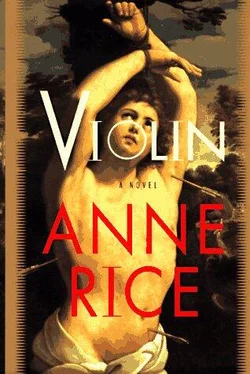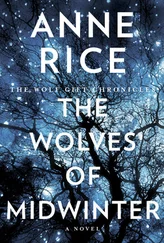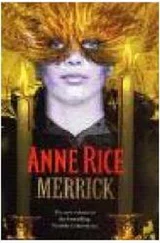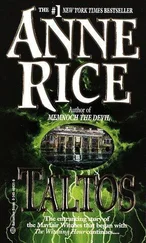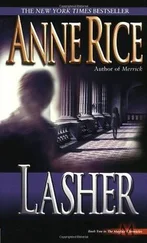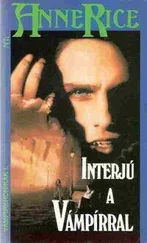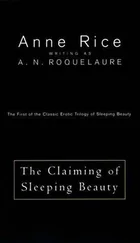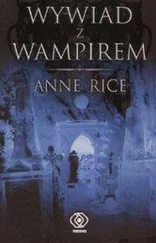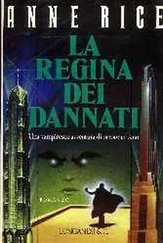"Give it to me!" he demanded, struggling to regain his balance.
I played and played so loud I couldn't hear him, turning away from him again, seeing nothing but her, I love you, I love you, I love you.
She said she wanted to die. We were in the park, and I was a young girl and she was going to drown herself in the lake. Students had drowned themselves in the lake of the park-it was deep enough. The oaks and fountains hid us from the world of the Avenue, the streetcars. She was going to go down into that slimy water and drown.
She wanted to, and desperate Rosalind, pretty Rosalind of fifteen years old, with her glossy perfect frame of curls, begged her and begged her not to do it. I had breasts under my dress but no brassiere. I had never even put one on.
Forty years later or more, I stood here. I played. I slashed and slashed at the strings with the bow. I stamped my foot. I drew out the sound, I made it scream, this violin, twisting this way and that.
In the park, near the filthy gazebo where the old men made urine and would always stand, leering, near there, eager to show a limp penis in a hand, pay them no mind, near there I had Katrinka and little Faye in the swings, those small wooden swings they had for the little little kids with the slide bar in front so they wouldn't fall out, but I could still smell the urine, and I was pushing both of them in the swings, taking turns, one push for Faye, one push for Katrinka, and these sailors wouldn't leave me alone, these boys, who were hardly any older than me, just the teenager sailor boys who were always in port in those days, English boys maybe or boys from up north, I don't know, boys walking along Canal Street, smoking their cigarettes, just boys.
"Is that your mother? What's wrong with her?"
I didn't answer. I wanted them to go away. I didn't think anything even in answer.
I just stared and pushed at the swings.
He had forced us out, my Father; he had said, You have got to get her out of this house, I have to get her out of here and clean this place, I can't stand it, you're taking her out, and we knew she was drunk, stinking drunk, and he made us take her; Rosalind said, I will hate you till the day I die, and we had all together gotten her on the streetcar and she had nodded and wagged, drunken and half asleep as the streetcar rocked uptown.
What did people think of her then, this lady with her four girls; she must have worn some respectable dress, yet all I can recall is her hair, prettily combed back from her temples and her lips pursed and the way she shook herself awake and straightened up, only to wag forward again, eyes glazed, little Faye clinging tight to her, tight, tight.
Little Faye, head against her Mother's skirts, little Faye, unquestioning, and Katrinka, solemn and sha med and mute and staring with numbed eyes already at that tender age.
When the streetcar came to the park, she said, "Here!" We all went with her to get off the streetcar by the front door, because we were nearer to the front. I remember.
Holy Name Church across the street and on the other side the beautiful park with its balustrades and fountains and the green, green grass where she used to take us all the time, years before.
But something was wrong. The streetcar stood still. The people in the wooden seats stared. I stood on the pavement looking up at her. It was Rosalind. Rosalind sat in a back seat looking out the window pretending that she wasn't one of us, ignoring Mother, as Mother said so ladylike you would have never dreamt she was drunk,
"Rosalind, dear, come on."
The driver waited. The driver stood there as they did at that time, in the front window of the car, with the controls, the two knobs, and waited, and everyone on the streetcar stared. I grabbed Faye's hand. She almost wandered into the traffic. Katrinka, sullenly, sucking her thumb, round-cheeked and blond, and lost, stared dully at all that took place.
My mother walked back down the length of the car. Rosalind couldn't hold out.
She had to get up, and she came.
And now, in the park, as Mother threatened to drown hersel£ as she fell back on the grass sobbing, Rosalind begged her and begged her not to do it.
The sailor boys said, "How old are you? Is that your Mother? What's wrong with her? Here, let me help with that little girl."
I didn't want their help! I didn't like the way they looked at me. Thirteen. I didn't know what they wanted! I didn't know what was wrong with them, to crowd around me like that, and two little children, and over there, she lay on her side, her shoulders shaking. I could hear her sobs. Her voice was lovely and soft as the pain perhaps grew less sharp, the prick of it that Rosalind had tried to stay on the car, that Mother was drunk, that my Father had forced her out, that she was drunk, that she wanted to die.
''Give it back to me!'' he roared, ''give me the violin.''
Why couldn't he take it? I didn't know. I didn't care.
I went on and on with the chaotic dance, the jig, my feet moving, prancing like the feet of the deaf mute Johnny Belinda in the movie, to the vibrations of the fiddle she could only feel, dancing feet, dancing hands, dancing fingers, wild, mad, Kerry rhythm, chaos. Dancing on the bedroom floor, dancing and playing and letting the bow dip to the left then bringing it down, fingers choosing their own path, bow its own time, yes, jam, jam, as they said at the picnic, let it go, jam.
Blow it Out, let it go. I played and played.
He grabbed at me, clutching me. He wasn't strong enough to overpower me.
I backed up against the window, and wrapped my arms over the violin and the bow against my chest.
"Give it back," he said.
"No!"
"You can't play it. It's the violin that's doing it; it's mine, it's mine.
"Give it to me, it's my violin!"
"I'll crush it first!"
I crunched my arms tight against it, I didn't want to make the bridge collapse, but he couldn't tell how hard I held it. I must have been all elbows and huge eyes to him, holding it.
"No," I said. "I played it, I played it that way before, I played my song, my version of it.
"You did not, you lying whore! Give me the violin now, damn you, I tell you, it's mine! You can't take such a thing."
I shivered all over staring at him. He reached for me, and I shrank in the corner and tightened my grip.
"I'll smash it!"
"You wouldn't do that."
"Why should it matter? It's a spectral thing, is it not? It's a ghost as you are ghost?
I want to play it again. I want... just to hold it. You can't take it back. .
I lifted it and put it under my chin again. His hand came out and I kicked hi m again. I kicked at his legs as he tried to get away. I put the bow to the strings and played a wild cry, a long awful cry and then slowly, with eyes closed, ignoring him, holding tight to it with every finger and every fiber of my being, I played, I played soft and slow, a lullaby perhaps, for her, for me, for Roz, for my wounded Katrinka and my fragile Faye, a song of twilight like Mother's old poem, her soft voice reading to us before the war ended and Father came home. I heard the tone rise, the rich and rounded tone; ah, this was the touch, this was the very touch-the way to bring the bow down with no conscious thought of pressure on the strings, and then it was just one phrase following another. Mother, I love you, I love you, I love you. He'll never come home, there is no war, and we'll always be together. These higher notes were so thin and pure, so bright yet sad.
It weighed nothing, the violin, it hurt my shoulder bone only a little, and I felt a dizziness, but the song was the compass. I knew no notes, no tunes. I knew only these wandering phrases of melancholy and grie£ these sweet Gaelic laments without ending, one twining into the next, but it flowed, dear God, it flowed, it flowed like-what, like blood, like blood on the filthy rag on the floor. Like blood, the never ending flow of blood from a woman's womb and a woman's heart, I don't know. In her last year, she bled month in and month out, and so had I at the end of my fertile life, and now childless, no more ever to be born out of me at this age now, like the living blood, let it go.
Читать дальше
